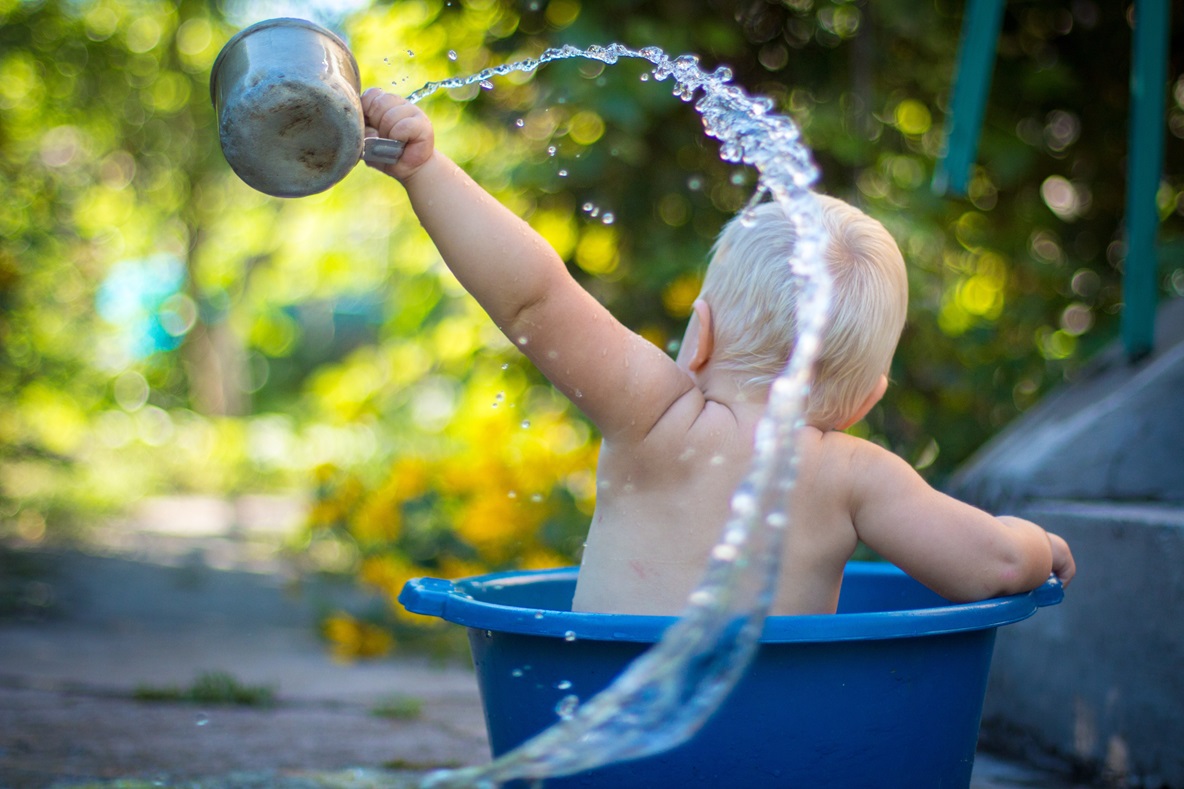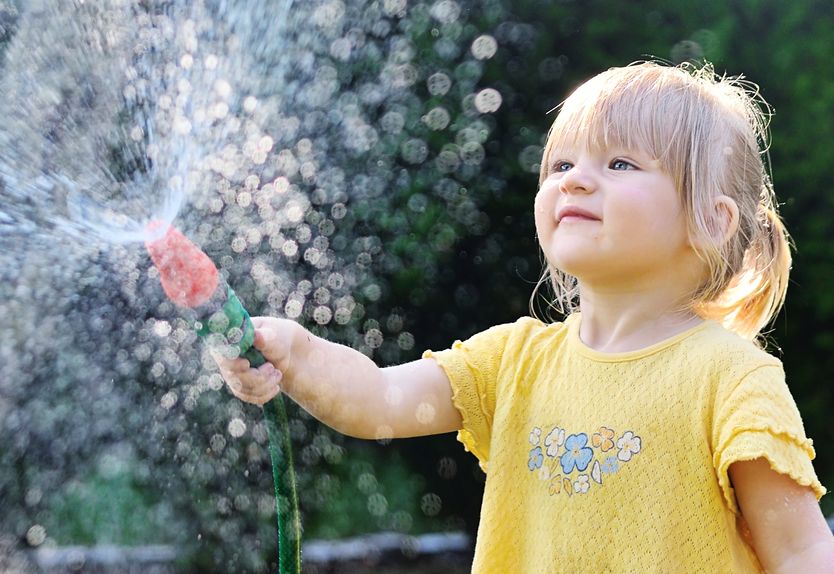Wet, wet ,wet
We have had some lovely weather this summer and so and one of the most popular choices for outdoor activities during these lovely warm days has been water play. Whether it’s splashing, running through a sprinkler, or simply playing with water in a basin or bucket, water play offers endless entertainment. It’s such fun to get wet.
Playing with water is a great way to engage our little ones and have fun on a hot day, but that’s not all it’s good for. Here at The Vines, we believe that the environment can be one of the best teachers and water play promotes learning and growth for children of all ages.
Water play has numerous developmental benefits
Splashing, pouring, scooping, and exploring the various sensations that water provides through simple activities like filling and emptying containers to more complex experiments with floating and sinking, water play engages children’s senses and sparks their curiosity.
One of our favourite activities here at the Vines Early Learning Centre in Henderson is mucking around with the array of water play equipment we have in our outdoor areas. We have designated areas with a water play table or large tubs. These water play stations not only make playing with water more accessible but they foster social interaction as the children gather around to explore and play together with buckets, containers, cups, sieves and toys such as boats, dolls, fish and ducks in a safe and controlled environment.
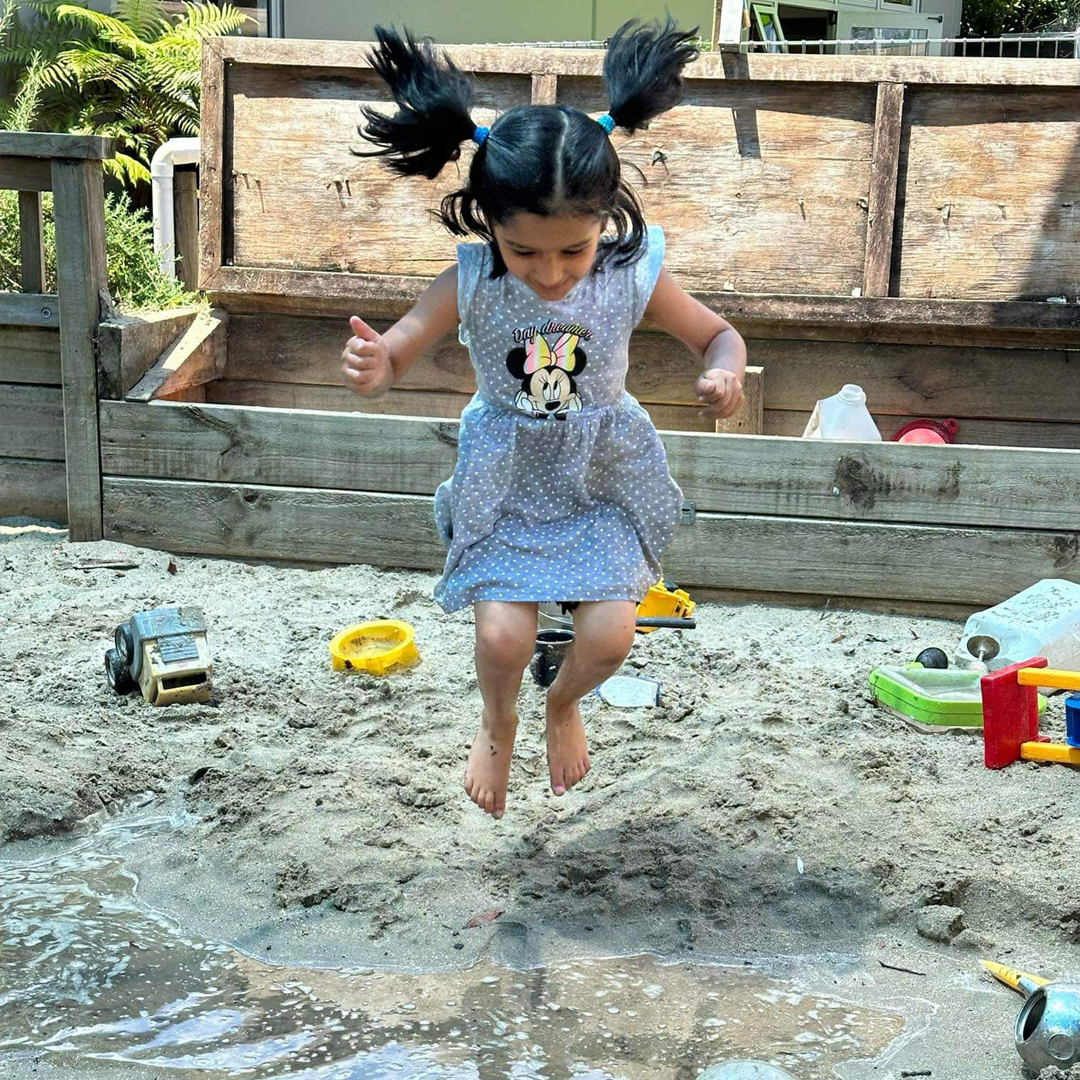
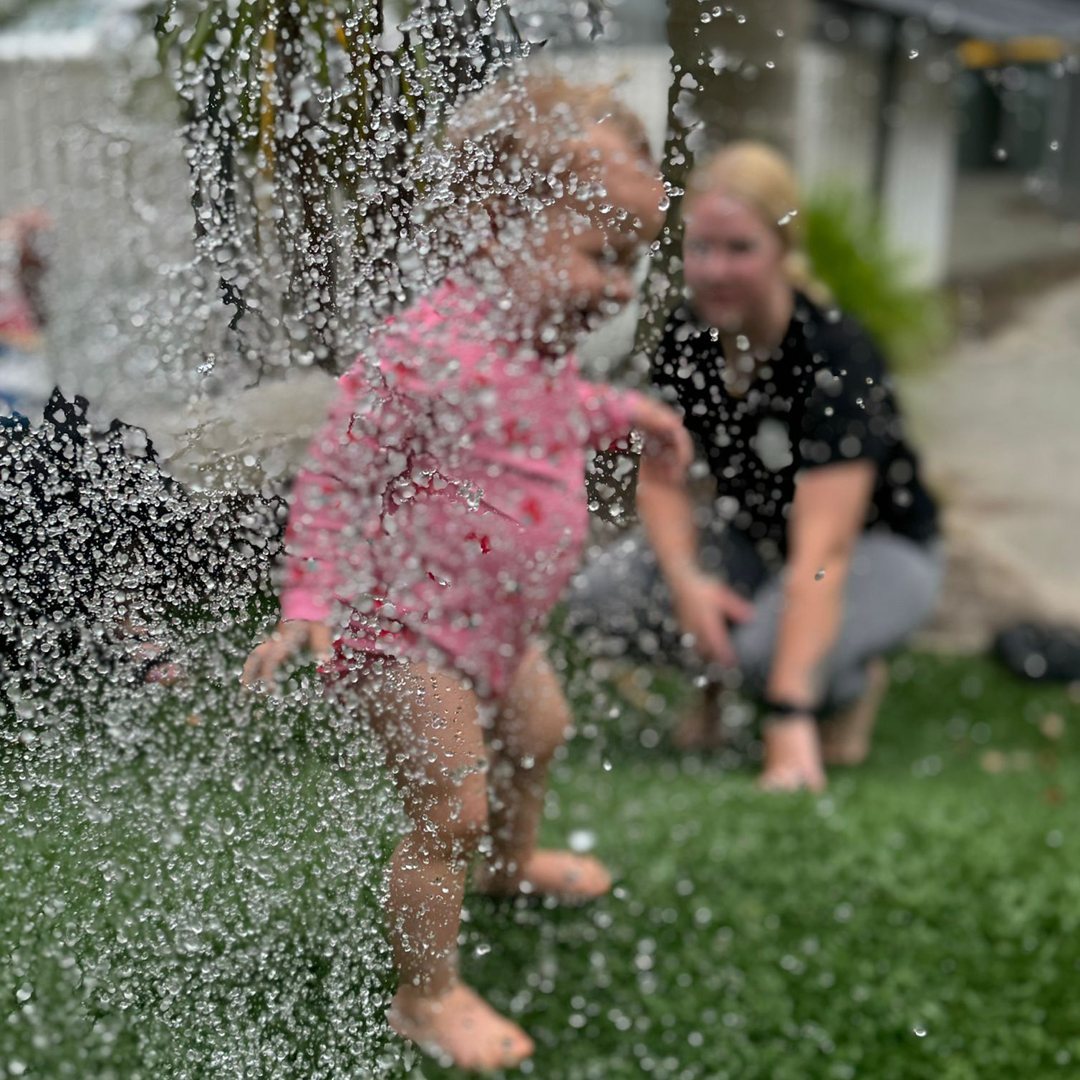

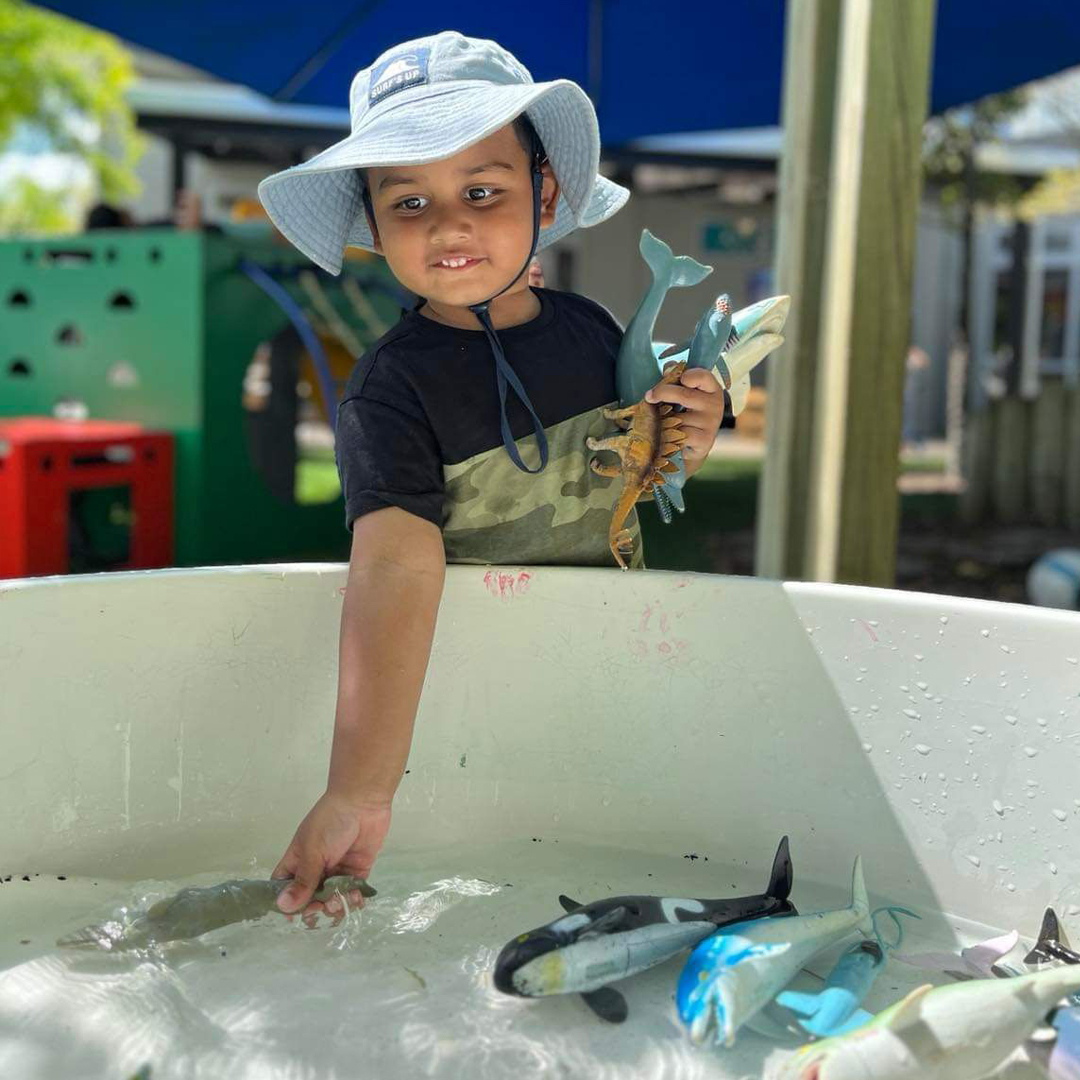
Water play in early childhood education
There are many benefits of water play, we could list loads. But to keep this blog reasonably short, we’ve kept our list to what our ELC teachers at The Vines see as the main benefits of water play in early childhood education.
1. Physical development
Water play provides children with opportunities to develop their gross and fine motor skills. Pouring water from one container to another, squeezing sponges, using water toys or learning how to control the direction and size of a splash, all require hand-eye coordination and muscle control.
2. Cognitive development
Water play enhances concentration and focus. Kids tend to lose themselves and can spend long periods exploring and playing with water. As they observe and interact, they can make discoveries about how water moves and flows, and how different objects act in water: do they float or sink? They can learn about concepts such as volume, buoyancy, and gravity in a hands-on way. Watching a branch or paper float or sink will teach them how and why things happen. But above all, it encourages them to use their imagination and develop creative thinking, an important part of problem-solving.
3. Maths and science made fun
Water is the perfect medium for exploring maths and science. Children can measure, compare volumes, observe motion and count. Water lay is a tremendous way reinforce terms such as full, empty, half or less and demonstrate concepts such as volume and weight. How much water do you think could fit in this bucket? Can we measure it? What do you think will happen if we drop this stone into the bucket?
Splashing around with water at home
You don’t need fancy water play equipment or expensive water play mats to enjoy water play at home. With just a few simple materials, you can create a fun and engaging experience for your child.
Here are some ideas:
– Set up a water play station using a table or some different-sized plastic tubs and buckets in your garden or on your deck.
– Add toys like boats, watering cans, and plastic animals. Cheap little magnetic fishing rod sets are always a huge hit!
– Use household items like measuring cups, funnels, and sponges.
– Experiment with adding sensory materials like sand, bubbles, or food colouring.
4. Social development
Because it is usually a social activity at our early learning centre, water play provides children with opportunities to interact and collaborate. It encourages cooperation and communication. Whether they’re taking turns with water toys, or simply splashing around side by side, through shared experiences, children develop important social skills such as sharing, empathy, and conflict resolution.
It also gives children the chance to see what happens when the sharing of materials and ideas takes place. They may decide to fill a bucket with water from the tap, or build a moat in the sandpit, or take turns jumping into the water to see who can make the biggest splash. When it becomes a group activity, water play encourages children to engage and cooperate.
Children also react differently to water, so they may learn not to splash James too much, or that Ian needs a friend by his side to feel confident. Water play can have great social benefits.
5. Emotional development
The soothing nature of water can help children relax, unwind, invigorate and calm. A tranquil and repetitive activity, such as scooping, pouring or simply running hands through water, can reduce stress and anxiety. On the other hand, the laughter that the simple joy of playing and splashing generates makes everyone feel good and ready to take on the world.
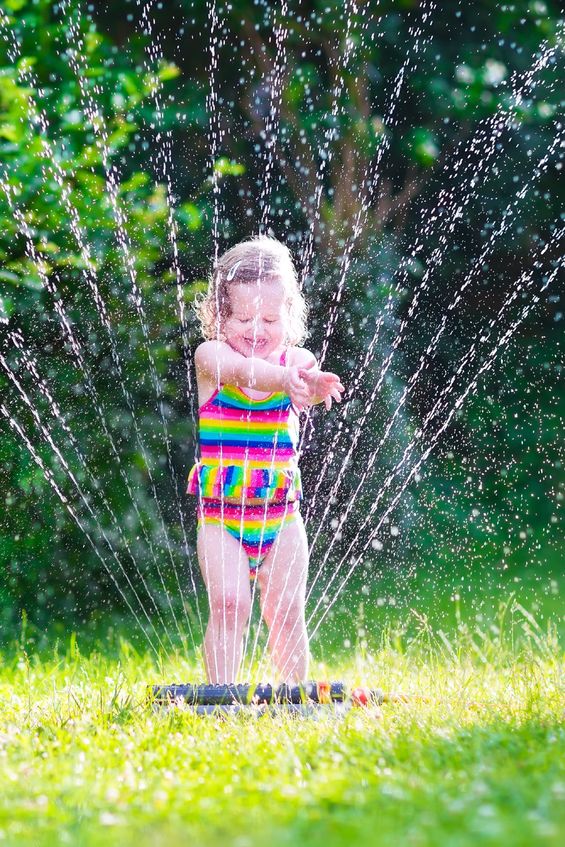
Water play benefits children and parents alike
The benefits of water play are many and by incorporating water play into your child’s routine, you’re not only providing them with a fun and refreshing activity but also supporting their physical, cognitive, social, and emotional development in a fun and engaging way. Water play provides children with opportunities to learn, explore, and connect with the world while giving parents a lovely time listening to the giggles. So, grab some water toys and dive in!
